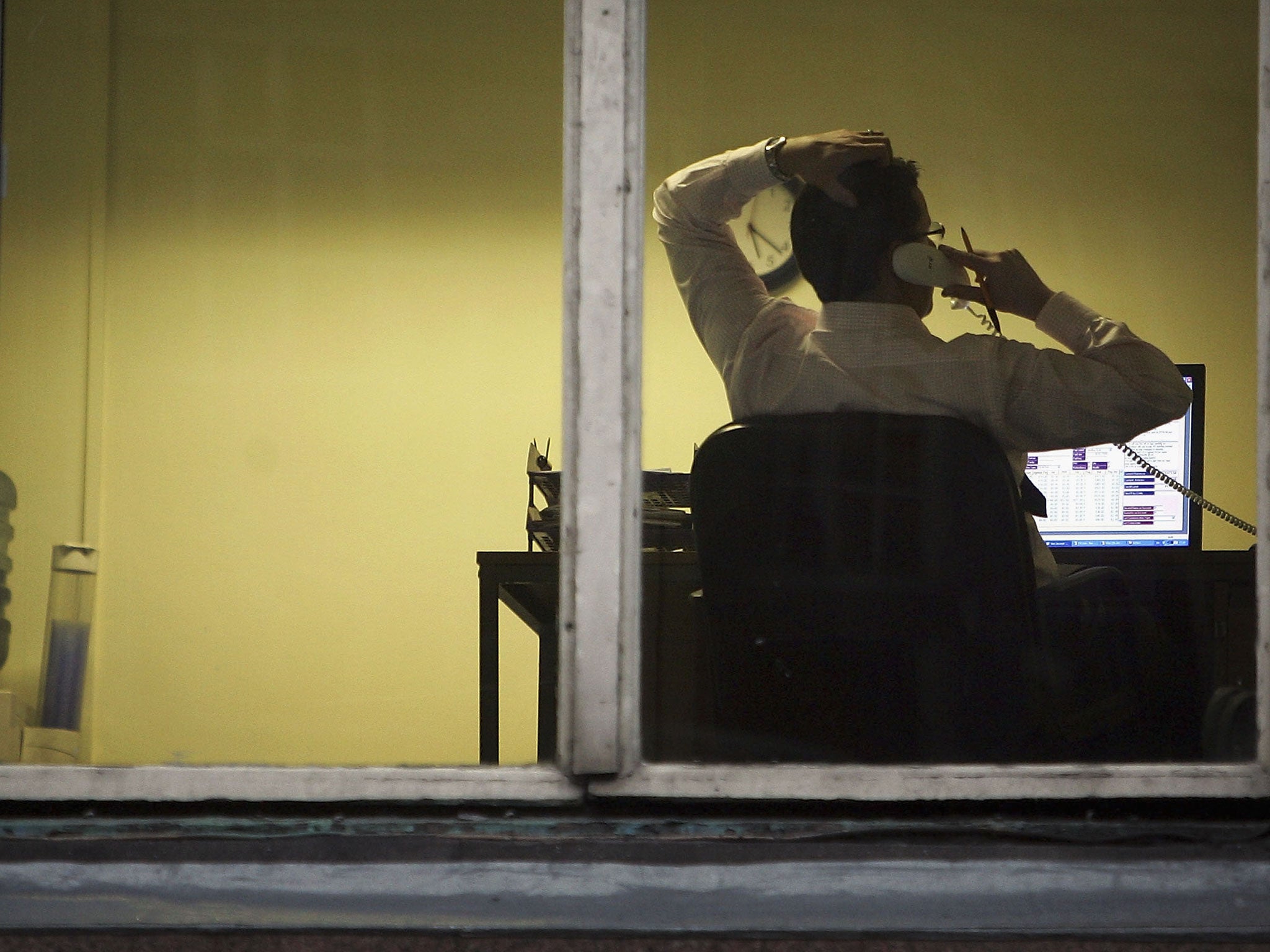Did you spend National Work from Home Day in the office? Lucky you
The idea of a nation of workers toiling in isolation at home is dystopian

Here’s a statistic to make a worker’s heart rate rise and their palms clammy: the average speed of the rush-hour commute has slowed to 15.9mph on London’s roads. In many parts of the capital, and in other cities from Birmingham to Bristol, Newcastle to Norwich, traffic regularly crawls at less than 10mph during the morning peak.
From an economic point of view, this is a good sign. The recession is over; car sales are on the rise and the nation is driving back to work, albeit teeth-grindingly slowly. Gridlock is a price that must be paid for a healthy financial climate. Just don’t mention the potholes.
From any other point of view, this daily chug looks absurd. A stuttering, clenched-knuckle hour on the road is no way to start the day, or end it. Worse, it is a waste of time. Imagine how many more spreadsheets could be checked, reports drawn up, articles written even, in the hundreds of hours frittered in the Blackwall Tunnel or dawdling along the M6.
Yesterday was National Work from Home Day. If, like me, you were at the office, you might have missed it, especially as it arrives on the national calendar right in the middle of British Sandwich Week and the day before World Whisky Day. While this particular spurious Day might have had more serious impact had it not coincided with the hottest Friday of the year so far, working from home is far from the euphemism for logging on around the laundry it once was.
According to a report from the TUC, using data from the Office for National Statistics, four million people in Britain now work from home, a record figure and an increase of 62,000 over the past year. Since 2007, the number of people who have hung up their lanyards, wiped their canteen cards and swapped the watercooler for the kitchen sink has risen by half a million.
Of course, the advance of technology and widespread access to high-speed internet mean that many, many jobs can be done just as well, if not better, from a spare room as from an office.
The advantages are clear. Not only do workers waste less time slogging to and from their desks each day (and keep the roads clearer for those who have no choice about making the journey), but it also offers flexibility to those who need it, like parents with tricky childcare arrangements or those with disabilities who cannot travel.
It also offers flexibility to those who might not need it, but want it. People who want to choose which eight hours of the day they work, when they take a break to exercise and what food they eat in their lunch break. All things that probably make for a happier, and more productive, workforce.
There is still great resistance to this idea in many workplaces. For employers, the concern is that the home office is a “skiver’s paradise”, as London Mayor Boris Johnson put it, that their workers might not put in the hours they are being paid for. Then again, cigarette breaks, personal calls and Facebook mean that those in the office might very well not put them in either.
Still presenteeism is ingrained and face time valued as highly, if not more highly, than results. In macho working cultures like the City, the pressure simply to be at one’s desk can be dangerously, occasionally fatally, high.
And yet, the idea that the office might one day become an anachronism is somehow alarming. There is something just as dystopian about a nation of workers toiling in isolation in their spare rooms as a nation crawling down roads as one to the office.
Workplaces can be creative, a space where ideas spark, alliances form and potential is spotted and nurtured. In my occasional experience, working from home can be a lonely battle to get dressed before the first email of the day, constant jumpiness about missing a phone call and overcompensation for being away from a real desk. Many home-workers end up doing overtime and damaging their home life.
The rise in the number of people working out of the office will surely shift attitudes and normalise more flexible working models. Until then, the fear of being seen as a shirker may mean that many lose the work-life balance they were looking for in the first place.
Join our commenting forum
Join thought-provoking conversations, follow other Independent readers and see their replies
Comments
Bookmark popover
Removed from bookmarks